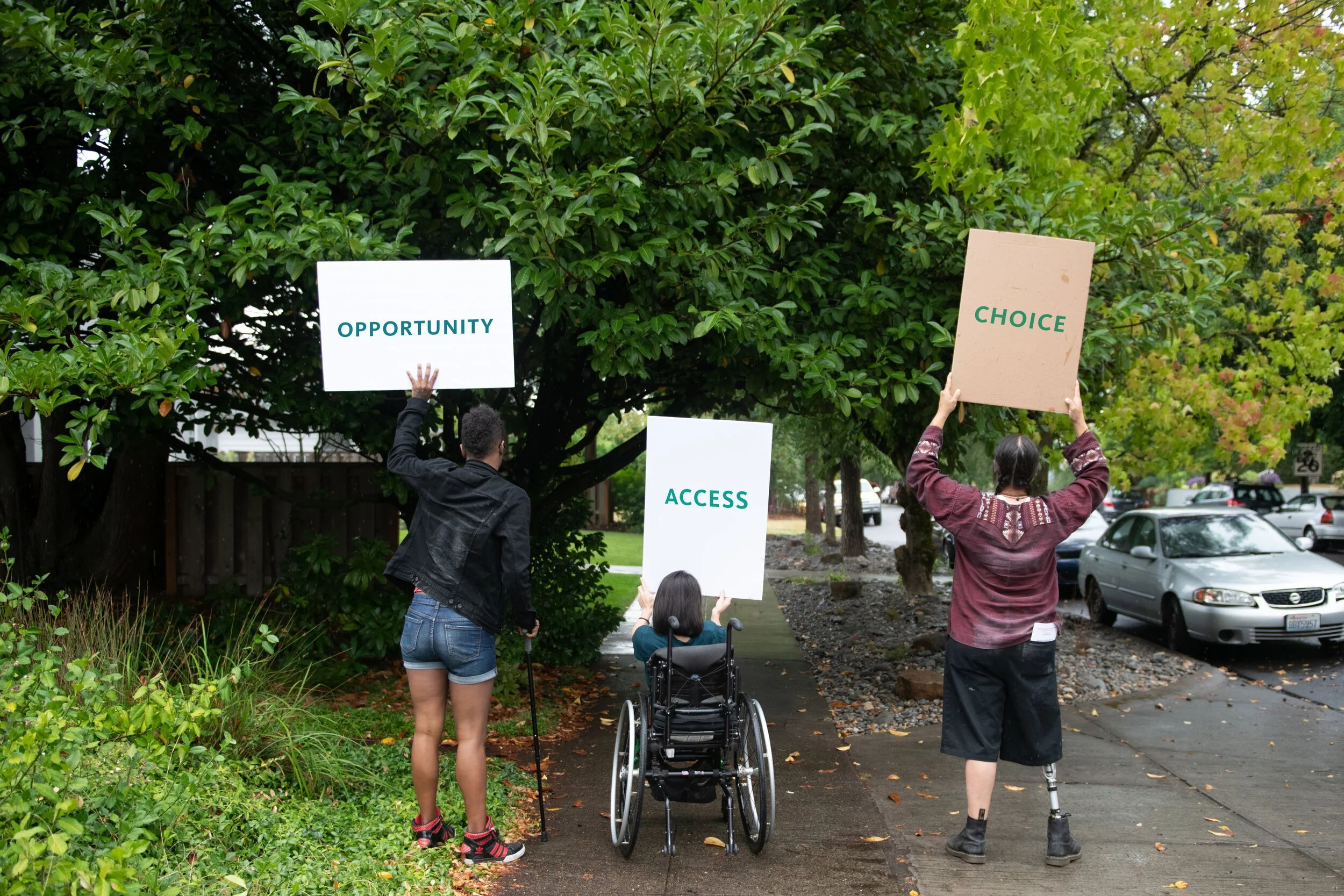About Us
Disability Rights Oregon helps people with disabilities with their disability-related legal issues in Oregon.
The fight for equality
People with disabilities have the right to live, work, and play in our community just like everyone else.
The fight for the rights of people with disabilities is a fight for equality—the struggle to not be excluded from the world just because you experience a disability.
People with disabilities want the opportunity to pursue their dreams and reach their full potential. That could mean going to school, being prepared for the workplace, getting a job, having a place to live, being able to go to the grocery store, seeing friends, or getting on a bus or train.
What Disability Rights Oregon does
Disability Rights Oregon pushes communities to reshape how we set up our schools, workplaces, parks, places of business, and public systems to ensure that people with disabilities truly belong.
Disability Rights Oregon is a non-profit advocacy organization. Our work is guided by the annual priorities set out by a Board of Directors, a Mental Health Advisory Council, and the disability community. Since 1977, we've gone into places that others can’t. We shine a light on conditions in jails, prisons, hospitals, schools, and other facilities across the state. We fight to uphold the civil rights of Oregonians with disabilities regardless of where they live.
What we focus on
Our legal advocacy spans every type of disability, at every age, in every type of place. To help the greatest number of Oregonians with disabilities, we advocate for lasting change through:
public education and outreach
information and referral, including publishing Know Your Rights guides
monitoring conditions inside institutions
Our Unique Access Authority
The federal government granted Disability Rights Oregon and the network of 56 sister organizations across the country unique authority to act as a watchdog for people with disabilities. This authority allows Disability Rights Oregon to go into places that other organizations can’t and request confidential records that others can be denied. Congress granted this independent monitoring power to Disability Rights Oregon to help uphold the rights of people with disabilities, especially when others fail.
Disability Rights Oregon has authority for the following:
Full access to facilities
Inspect all areas of the facility used by residents or accessible to residents without the presence of any facility employee.
Speak privately with residents
Have confidential conversations with any resident, including minors or adults with guardians, at all reasonable times. Disability Rights Oregon does not need the consent of a parent or guardian to speak with a minor or adults with guardians.
Interview facility employees
Have the opportunity to interview any employee, or other persons, who Disability Rights Oregon reasonably believes has knowledge of the incident under investigation.
Review confidential records
Access any records maintained by the facility. This includes records that may otherwise be confidential or protected under HIPAA. When we can, we will seek the individual or guardian’s consent. If we think abuse and neglect with imminent harm is occurring, we don’t have to wait to get that written consent.
Take photos or video
Disability Rights Oregon can photograph or video record all areas of the facility used by residents or accessible to residents.
DISABILITY RIGHTS HISTORY
Our History
Protection and Advocacy System
Why were they created?
In 1975, a series of investigative news reports by local television news reporter Geraldo Rivera exposed abuse and neglect at a state institution for people with intellectual and developmental disabilities on Staten Island called Willowbrook. A New York Senator pushed Congress to mandate that each state and territory receiving funding to establish a Protection & Advocacy system to protect the rights of people with developmental disabilities.
Disability Rights Oregon’s work grew to encompass other disabilities and barriers, including:
People with psychiatric disabilities or traumatic brain injury (TBI)
Individuals with disabilities who need to access assistive technology
Individuals with disabilities and their right to vote
Recipients of Social Security Disability Income or Supplemental Security Income with benefits planning to help them determine how their benefits might be impacted by going to work















